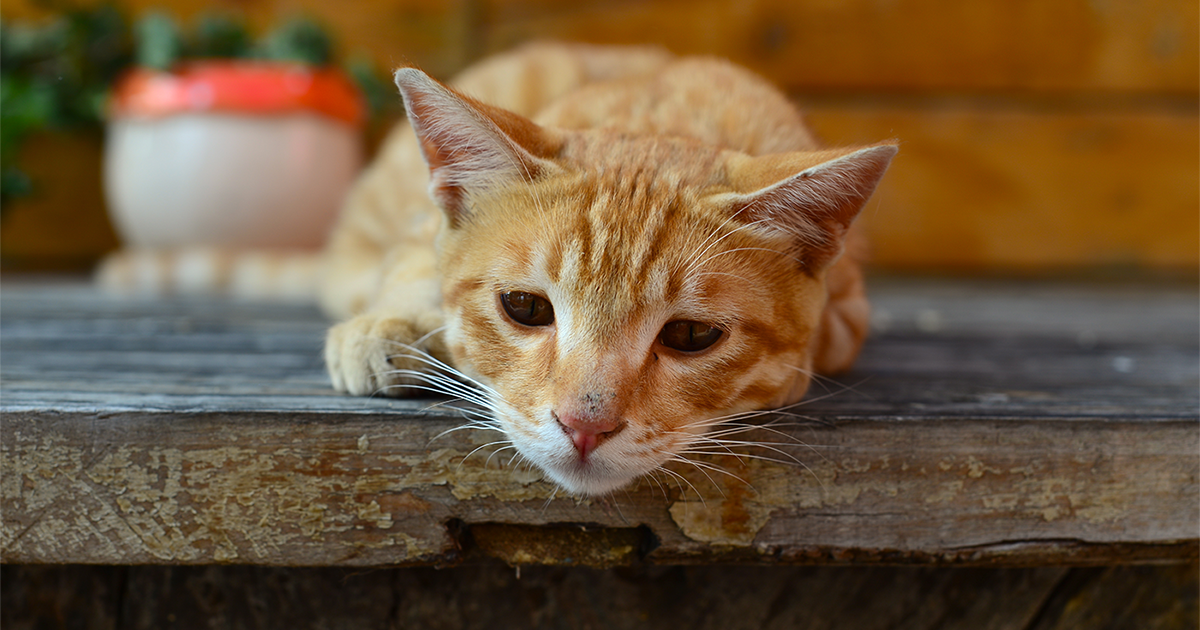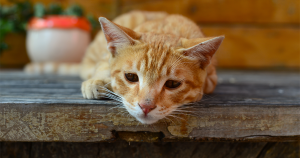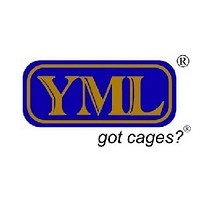Cat Colitis: Causes, Symptoms, and Treatment Options


Is your cat suffering from diarrhea? This prevalent ailment might be the source of the problem.
No cat parent likes to see their cat suffer from diarrhea, much alone clean it up. If your cat is vomiting, he or she may be suffering from colitis, a common ailment that causes diarrhea in people, cats, dogs, and other animals. Colitis in cats is frequently associated with an inflammatory bowel problem, although there are several other probable reasons. Most instances of colitis, fortunately, may be managed with drugs, dietary adjustments, and veterinarian supportive care.
What Causes Cat Colitis?
Colon inflammation is referred to as colitis (sometimes called the large bowel). Cats of any age, breed, or gender can develop colitis. This illness can occur quickly (acute colitis) or gradually (chronic colitis). Chronic colitis is frequently caused by another medical issue. It is frequently associated with inflammatory bowel disease, a disorder characterized by persistent inflammation of the gastrointestinal system.
Colitis in cats can be caused by a variety of factors, including:
- IBD (Irritable Bowel Disease) (IBD)
- Irritable bowel syndrome (IBS)
- Stress/anxiety
- Parasites of the intestine
- Food sensitivity or intolerance
- Indiscretion in diet (eating something they shouldn’t, such as human food)
- Infections of the gastrointestinal tract (bacterial, fungal, viral)
- Pancreatitis
- Trauma to the digestive tract
- Cat Immunodeficiency Virus (FIV)
Colitis in Cats: Signs and Symptoms
When cats develop diarrhea, it can affect either the big or small intestines, or both. Vomiting, weight loss, and tiredness are common symptoms of small intestinal diarrhea in cats. Blood in small bowel diarrhea is black in color, like coffee grinds or tar. Blood in the stool from big bowel diarrhea, on the other hand, seems to be fresh red blood.
Cats can experience both types of diarrhea at the same time, especially if they have inflammatory bowel illness. Colitis, on the other hand, is less likely to produce nausea, vomiting, and weight loss.
Colitis symptoms in cats include:
- Soft or runny stool with mucus or red blood cells
- Urinating outside of the litter box
- Increased bowel movement frequency
- Attempting to defecate (this may look like constipation)
- Uncomfortableness when defecating
- Changes in appetite
- Flatulence has increased
- Lower abdominal discomfort (usually caused by cramping or gas)
If your cat exhibits any of these symptoms, get help from your veterinarian. You’ll probably need to take your cat to the vet to make him feel better.
How to Treat Cat Colitis
The underlying cause of colitis in cats will determine the treatment. Your veterinarian will ask you about your cat’s diarrhea and medical history. Following a physical examination, the veterinarian will most likely propose certain diagnostic testing. A stool sample is generally taken to check for parasites and diseases. The doctor may also recommend X-rays of your cat’s belly to examine for any abnormalities, such as a foreign body or a lump. Blood tests may also be required to evaluate organ function, electrolyte balance, and blood cell count.
If your veterinarian feels you have IBD, you may be referred to a specialist for sophisticated diagnostics like as ultrasound, MRI, endoscopy, or exploratory surgery.
Colitis in cats is frequently treated using a mix of techniques. Medication and dietary adjustments are frequently included.
Medications
If parasites are the cause of your cat’s colitis, your veterinarian will prescribe a dewormer to treat the specific type of parasite identified.
Antibiotics such as tylosin and metronidazole are frequently used to treat feline colitis. Metronidazole, in addition to treating bacterial infections, contains anti-inflammatory effects that help alleviate diarrhea. Tylosin may stimulate the growth of healthy gut bacteria while killing harmful bacteria.
Corticosteroids are occasionally given to cats with IBD to decrease inflammation and regulate the immunological system (because it plays a role in IBD). Corticosteroid-treated cats must be closely managed to avoid adverse effects such as immune system suppression, hyperglycemia, and organ damage. When corticosteroids are ineffective, immunosuppressive medications such as chlorambucil or azathioprine may be administered.
Dietary Modifications
Dietary adjustments can help with many types of colitis. Your cat may require a brief food adjustment until the diarrhea clears up. Vets frequently advocate diets including hydrolyzed protein or new proteins such as rabbit or kangaroo in situations of chronic colitis or IBD. Consult your veterinarian about the healthiest diet to feed your cat.
Home Treatments
To treat diarrhea caused by colitis, some cat owners utilize natural therapies, fiber supplements, or over-the-counter pharmaceuticals. These solutions, however, may not work and may potentially make matters worse. Never offer OTC medications intended for people to cats since they may be hazardous. Before beginning any supplement, herb, OTC medicine, or other natural cure for colitis in cats, see your veterinarian.
Hospitalization
Cats with severe colitis may require hospitalization in order to get supportive treatment. This may involve intravenous fluids to rehydrate and balance electrolytes, as well as drugs to relieve pain and address the underlying cause of the colitis.
Stress Reduction
Some episodes of colitis are caused by stress, particularly in cats that already have IBD. You may take efforts at home to minimize your cat’s stress and anxiety. This will not halt the diarrhea, but it will help to avoid future flare-ups. Although a trip to the clinic may temporarily increase your cat’s stress level, it is frequently the only option to start therapy. It’s advised not to put off seeing the vet because your cat’s diarrhea will most likely worsen if you don’t.
What is the prognosis? The Future of Colitis in Cats
Acute colitis in cats is frequently resolved with simple therapy. Cats with chronic colitis or IBD, on the other hand, may require more rigorous therapy and may undergo flare-ups on a regular basis. These cats may require a specific veterinarian diet and/or medicine for the rest of their lives. Cats with chronic diseases like this will need to visit the vet on a regular basis.
Petstup is an official seller of the many well-known pets brands, focused on improving the lives of pets, pet parents and our partners. We proudly offer a large variety of pet nutrition products and supplies competitively priced for dogs, cats, reptiles, fish, birds and small animals. Petstup is your one stop shop for all your pet’s needs. All our products are authentic, and pass all mandatory United States standards and veterinary practices. We run several warehouses across the United States to serve you better and faster.




















